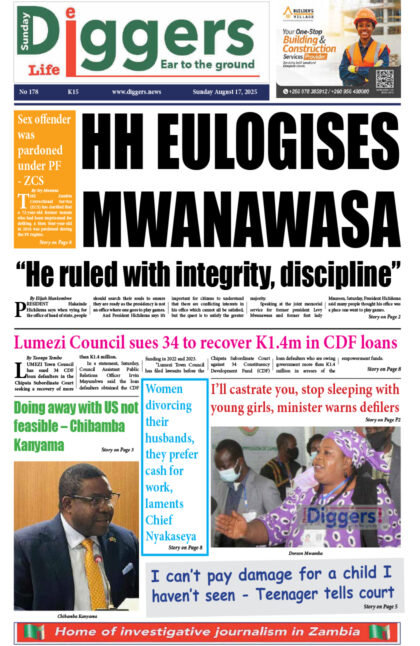Zesco spokesperson Henry Kapata took the heat today, responding to numerous callers on Hot FM Radio’s breakfast show, who expressed disappointment with the 75 per cent electricity hike
Kapata tried to explain how low income earners will benefit from the newly approved tariffs.
“From 0-200 units, we will be buying Zesco units at 15Ngwee per unit, after 200 units when the 50 percent is effected on the 15th of May, we shall be buying units at 77Ngwee per unit. When the other 25 percent comes in effect in September! We will be buying at 89Ngwee per unit. So we are talking about under K1,” Kapata said.
“So what ERB is saying is that they have not approved the fixed charges, we had applied for an increase in the fixed
charges because the current fixed charges are K18.23 on a monthly basis. We had applied to ERB so that the fixed charges can go up to K31.90 but ERB has said no, the fixed charges will still remain at K18.23.”
He said the commercial consumers will pay more after the increase in effected.
“For the commercial tariffs, remember that they are currently paying 28Ngwee per unit, and after the 50 percent is effected on May 15, they will be paying 42Ngwee per unit. And after the other 25 percent comes in September, they will be paying 49Ngwee per unit. And so you can see that a lot has been changed apart from the band which we had expanded as zesco limited when we applied to ERB, we had suggested that people pay 15Ngwee per unit up to 300 units but what came from ERB is that you can only pay 15Ngwee per unit to 200 units, after 200 units! When we effect the 50 percent, you will be buying at 77Ngwee per unit,” explained.
And Kapata said the utility was confident that people would understand why it was necessary to hike electricity tariffs.
“The public hearing was there quiet alright and the purpose of the public hearing was to receive submissions. Prior to that, ERB also received submissions from provinces, people had gone on institutional basis to go and submit their submissions and of course we were there to justify why we needed an increase in these tariffs, why we needed adjustments in Zesco tariffs.
“So it was a game where we wanted to convince the people of which I want to believe we have. They were also at liberty to challenge Zesco and we were at liberty to justify a lot of things such as the operational cost. We are coming from an operational cost of, in 2011 where we spent something like 2.1 billion compared to 2016 where we spent about 8.7 billion,” Kapata said.
He said if the tariffs were not increased, Zesco would have closed.
“So we were saying look! We are going to fold if we continue having these challenges. If it’s an ordinary company owned by a Mr Zimba or Tembo, it would fold because we are simply beggars from the government. And so we needed cost reflective tariffs and this is why we had applied to ERB and called for a public hearing, and everybody was making submissions. What is important now is to implement and sensitize our people to say look! This is a user friendly tariff,” said Kapata.























